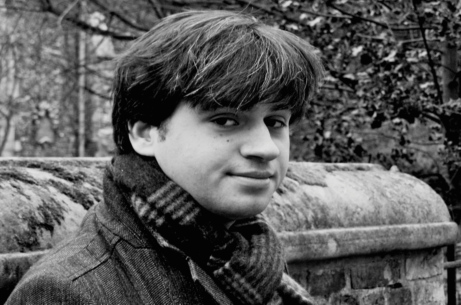
Classics scholar Jakub Szamalek has just published a crime novel on life in ancient times.
Jakub Szamalek’s first book was published to acclaim last year and he is now working on a second. Although he is completing his PhD in Classics focusing on the relations between the Greeks and the indigenous peoples inhabiting the Black Sea region, his book – in Polish – is not an academic treatise.
Instead Jakub has written a crime novel set in ancient Athens. He says: “I enjoy writing and showing what a wonderfully fascinating place the ancient world really was. I wanted to write a book which had both a good storyline and allowed the reader to learn a few facts about antiquity along the way.”
Jakub’s love of writing has grown alongside his academic studies at Cambridge. He writes a regular blog in Polish on life in ancient times and has just got a job as a writer working for the Polish equivalent of Google.
Jakub [2009] was born in Warsaw. His father is a professor of geology at the University of Warsaw and his mother, who also studied geology, works in the university’s HR offices. “They both tried to arouse an interest in rocks in me, but that didn’t go as planned,” he says.
He became interested in Classics at an early age. When he was around six years old, his mother bought him an Asterix comic book. He loved it and read all the other books in the series before moving onto other books about ancient times, starting with “Horrrible Histories” and finally working his way up to reading writers such as Aristophanes and Tacitus.
At school, Jakub showed an early interest in writing and performing. He enjoyed acting and took part in a few theatrical performances as well as writing several short plays. “I was thinking of continuing this hobby in the UK, but with my accent I could only play Russian spies, and they don’t appear in many plays these days,” he says.
After high school, he applied to Oxford University to study Classical Archaeology and Ancient History. He had not considered studying abroad until he met his future wife who was going to study in the UK. “The only chance I had of keeping this relationship going was by going after her,” he says. She and Jakub got married last year and both he and his wife are now PhD students at Cambridge.
After finishing his undergraduate degree at Oxford, he did a masters in Classical Archaeology before applying to Cambridge for his PhD.
It was at Cambridge that he discovered that he really enjoyed writing non-academic stuff and he devoted a lot of his free time “to typing whatever was on my mind…”
That included a Polish blog on ancient art which he began in the first year of his PhD. He began it for two reasons – first, because he wanted to show that the ancient world was far more intriguing and fascinating than is frequently assumed; and second, he felt that after spending so much time in the UK his Polish was getting a bit rusty. After a few months, he approached the biggest Polish weekly magazine, “Polityka”, asking if they would like to host it on their website. Not only did they host it, but they syndicated it and he occasionally writes articles for the magazine.
His research at Cambridge focuses on interactions the cultural interplay between various “peoples” in the ancient world and how to identify those different peoples. He says: “It’s a project in theoretical archaeology – so I didn’t do much of Indiana Jones-style fieldwork.”
As he was writing up his PhD, he applied for a job as a writer for the highly successful Polish video-game producer, CD Projekt RED. It was looking for someone who could come up with new ideas for games, as well as writing in-game stories and dialogues and Jakub got the job. He says: “It sounded like a dream job – getting paid for writing fiction while working for the Polish version of Google.”
He says that doing his PhD has shown him that he enjoys writing essays and fiction much more than working on academic papers, but through his creative writing he can continue to convey his passion for the ancient world.












